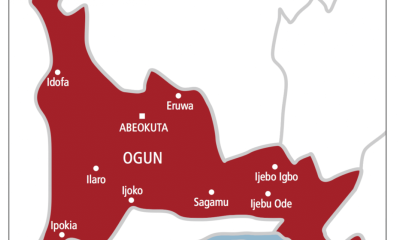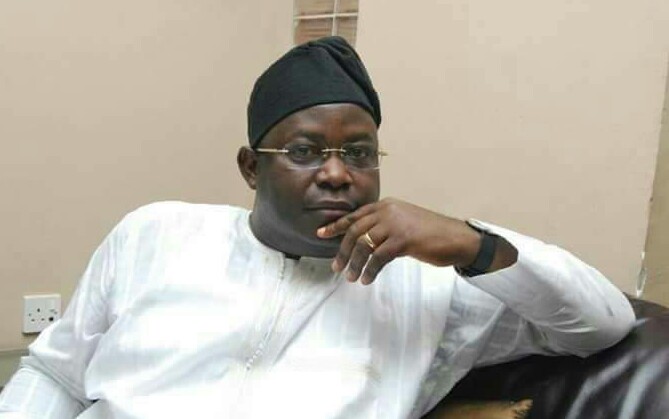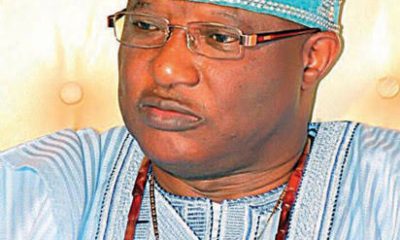News
Insurgency: De-radicalization, The Only Option For Nigeria-Sen. Omoworare

The Senator, representing Osun East Senatorial District, Senator Babajide Omoworare on Monday suggested total de-radicalization as a viable option to end insurgency in Nigeria.
Omoworare made the submission at a public lecture organised by the department of Public Administration, Obafemi Awolowo University, Ile-ife, Osun State, with a theme: “Former Combatants and De-Radicalization: From Northern Ireland to Nigeria”.
Omoworare, who was the chairman of the occasion maintained that there is an urgent need to demobilise Boko Haram insurgents, and de-radicalize them along other people who experienced the brutal activities of the group, especially the youths.
He added that the post- 911 Al’ kadar bombing and the attendant proliferation of terrorist organisations in the world, Counterterrorism and concept of de-radicalization has come to the front burner in international relations and diplomacy.
According to him, strategies and policies resorted to more benign and most often preventive procedures to check the attractiveness of terrorism other than military or suppressive measures.
“De-radicalization is fast becoming the most fashionable counterterrorism model. De-radicalization programs which are targeted at peacefully moving individuals and groups away from violent radicalism and activism, have grown both in popularity and in scope of late.
“There may be as many as forty different de-radicalization programs worldwide, the best known of which are in Ireland, Egypt, Algeria, Saudi Arabia, Singapore, Indonesia, Jordan, Germany, Columbia, Denmark, Somalia and Pakistan. And of recent Nigeria and the United States of America.
“The burden of the new age field is that from Northern Irelands ‘Early Prison Release’ program of the Belfast (Good Friday) Agreement of 1998 to the Nigerian Niger Delta Amnesty Program and the Judge Davis 2016 District of Minnesota’s Terrorism Disengagement and De-radicalization Program in United States, De-radicalization programs have had its own disparagements.
“Opinions against the concept of De-radicalization abound. In Nigeria, communities have protested the transfer of terror suspects to prisons in their locality and the Nigerian Counter-Radicalization programme is encountering challenges on its objective of re-integrating de-radicalized former Boko Haram combatants to the local community.
” It is my wish that at the end of this discourse Dr. Gordon Clubb(The Guest Speaker) and all the other contributors would have done justice to the overall concept of De-radicalization by defining, seeking conceptual clarity and finding co-relations between De-radicalization and other similar terminologies being used like “Disengagement “Desertion”, “demobilization”, “defection”, “de-escalation”, “rehabilitation” and others.” (John Horgan). Secondly I hope our exercise here today appreciate the effectiveness of De-radicalization and create a strong basis for its acceptance as a panacea to radicalization.
“Finally, let me call on the Federal Government of Nigeria especially the Ministry of Justice, the National Assembly, the Office of the National Security Adviser and the Nigerian Counter-Radicalization Programme to resolve all legal, legislative, Judicial and security issues around de-radicalization and amnesty.
“There is also a need for the engagement of the Nigerian academic community as a “think-tank” to seek wide consultations, embark on a study of existing de-radicalization programs and in the conduct of researches,” Omoworare said.
Meanwhile, the Guest Speaker, Dr. Gordon Clubb of University of Leeds, United Kingdom, and an expert in International security has established that terrorists and their groups are not isolated entities, rather a product of social environment.
Clubb noted that former combatants have significant roles to play in countering violent extremism and insurgency.
He copiously cited the Northern Island example where militant groups were demobilized in the year 2000, and reintegrated into political and communities route.
He averred that formal combatants in Northern Island have helped prevent escalations in the structures of violence, and promoted inter-group dialogue as early warning system.
Current Boko Haram formal combatants are defectors, many of whom joined unwillingly or for socio-economic motivatioqns, their roles are limited to demoralising group, intelligence sharing, and reinforcing counter-narratives, depending upon community mistrust,” he stressed.
-

 News4 days ago
News4 days agoBad Roads In Obaagun Township: An S.O.S. to Governor Ademola Adeleke By Dr. Wale Atoba
-

 News4 days ago
News4 days agoWomen Empowerment Takes Center Stage As UACC President, Rev’Owoyemi Declares Open 2024 UACC Women’s Conference In Ibadan
-

 News4 days ago
News4 days agoCSO Faults FIJ’s Reports On Ibrahim Egungbohun Dende, Says It’s Campaign Of Calumny
-

 News3 hours ago
News3 hours agoJust In: Adeleke Appoints Former Osun Commissioner For Finance, Bolorunduro Chairman Of Living Trust Mortgage Bank














